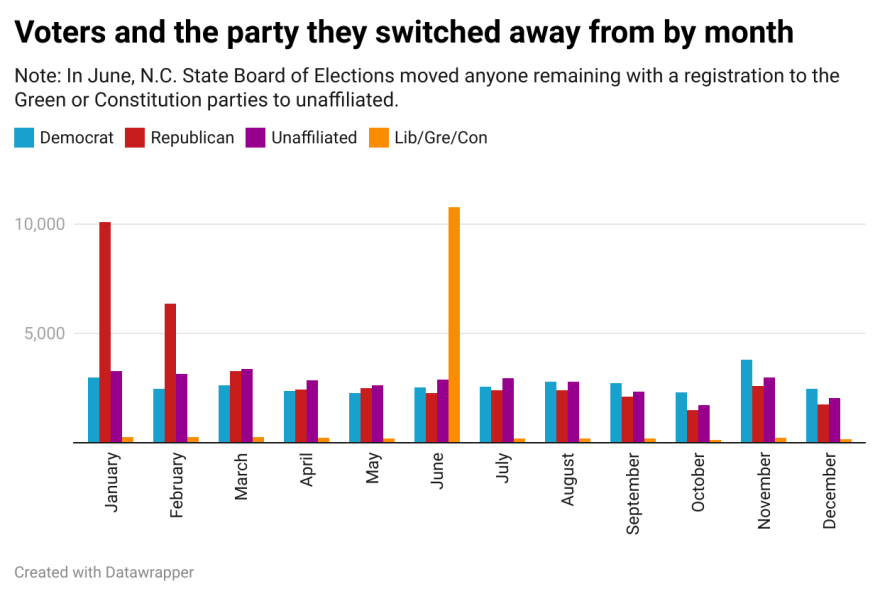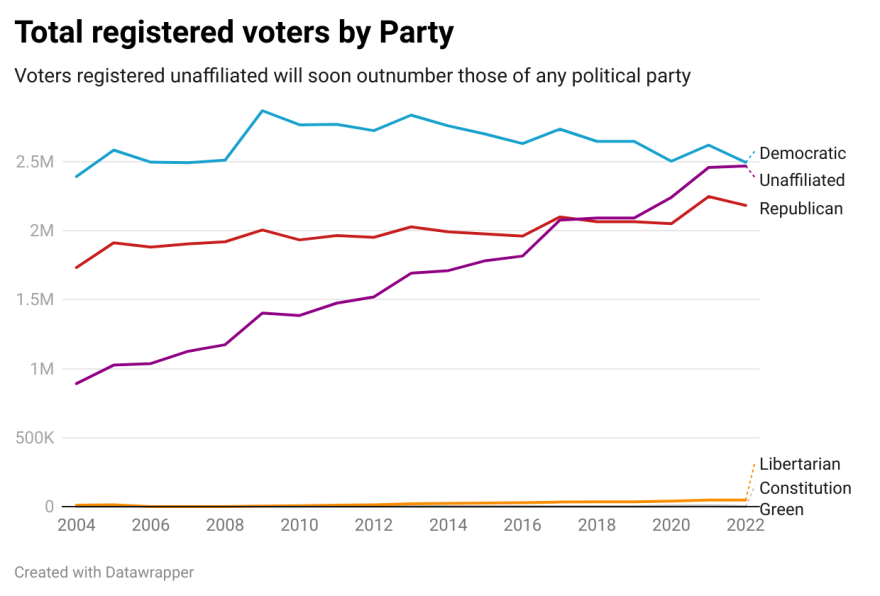Directly after the insurrection on Jan. 6, 2021, North Carolina Republicans switched party affiliation in larger than usual numbers.
But that trend would last only a few weeks, and by the end of December, nearly as many Democrats left their party in 2021, as Republicans left theirs.
Public attention to politics in general, and party affiliation in particular, tends to spike in presidential election years and dip in years directly following. But 2021 captured voters' attention more than four years prior. In total, more than 117,000 voters in North Carolina switched party affiliation last year, compared with about 49,000 who switched affiliation in 2017.

Taking a broader look, both major political parties are falling out of favor with North Carolina voters. Already, those registered unaffiliated outnumber registered Republican, and will almost certainly overtake those registered Democrat in the coming months.
North Carolina Central professor of political science Jarvis Hall says he was a bit surprised that more Republicans didn't leave their party. He says in the year that has passed, it shows the narrative has turned away from those who were injured and threatened.
"And the fact that it was an assault on the major symbol of our government. The symbol of our democracy," Hall said. "And what they have done, of course, is whitewash it to a large extent, and turned it into just another day at the Capitol."

The insurrection kept popping up in headlines throughout the year as the Congressional Jan. 6 Committee made progress in calling witnesses and the legal system prosecuted dozens involved in that day's violence.
However, the Republican Party has worked to downplay the events. Earlier this month, the Republican National Committee passed a resolution saying the events of that day were simply "ordinary citizens engaged in legitimate political discourse," and censured the only two House Republicans in the committee investigating the events of the insurrection.
Hall said that tells him "there are some issues that the Republican Party really has to deal with in a very serious way."
Taking a step back and looking at party affiliation in North Carolina more broadly, shows that ever since a big uptick in 2008, the Democratic Party has been steadily losing voters registered to that party. The Republican Party, though smaller, has been growing slowly. But those registered unaffiliated has been on a sharp increase.
Still, that doesn't mean North Carolina is filled with swing voters, says Mark Milewicz, a professor in the UNC-Pembroke Political Science and Public Administration Department.

"Many of these, however, still lean to one party or the other when asked," Milewicz said. "If we remove the leaners from the analysis, we see a somewhat lower, but steady number of pure independents, which generally amount to less than 20% of the electorate. Those numbers, though, have increased slightly in recent years."
In 2021, the N.C. Board of Elections no longer recognized the Green and Constitution parties. Nearly all of those registered to those parties, about 10,000 in total, were changed to unaffiliated.







